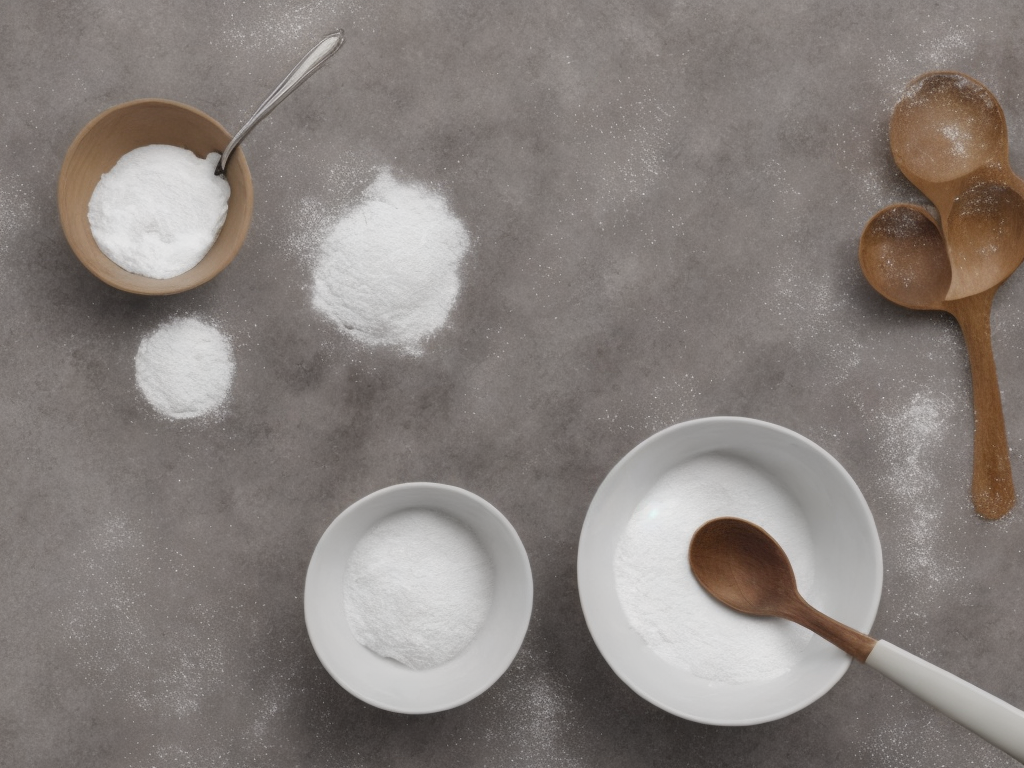
Baking soda and baking powder are two commonly used ingredients in baking, particularly for making cakes, muffins, cookies, and other baked goods. Although they are used in similar ways, they have different chemical compositions and functions in baking. In this essay, we will explore the differences between baking soda and baking powder in terms of their chemical composition.
Baking Soda
Baking soda is a white, crystalline powder that is commonly used as a leavening agent in baking. Chemically, it is known as sodium bicarbonate, which has the chemical formula NaHCO3. Baking soda is produced through a chemical reaction between sodium chloride, ammonia, and carbon dioxide. It is a weak base that reacts with acids to produce carbon dioxide gas, which causes the dough or batter to rise.
The chemical composition of baking soda makes it an effective leavening agent. When baking soda is mixed with acidic ingredients such as vinegar, lemon juice, or buttermilk, it reacts to produce carbon dioxide gas. This gas then makes the dough or batter rise, giving baked goods their light, fluffy texture. Baking soda is also an effective alkaline cleaner, making it a popular household cleaning agent.
Baking Powder
Baking powder is also a leavening agent that is commonly used in baking. Unlike baking soda, which is a single compound, baking powder is a mixture of several compounds, including baking soda, cream of tartar, and starch. This mixture is designed to provide both the acidic and basic components required for the reaction to take place, making it a self-contained leavening agent.
Baking powder is made up of two main components: baking soda and an acid. The acid commonly used in baking powder is cream of tartar, which is also known as potassium bitartrate. This acid is added because it reacts with baking soda to produce carbon dioxide gas, which causes the dough or batter to rise. The third component in baking powder is a starch, which is added to absorb moisture and prevent the baking powder from reacting prematurely.
Difference in Chemical Composition
The primary difference between baking soda and baking powder lies in their chemical composition. Baking soda is a single compound, sodium bicarbonate, which is a weak base. On the other hand, baking powder is a mixture of several compounds, including baking soda, cream of tartar, and starch. The addition of cream of tartar provides the acid component necessary for the leavening reaction to occur.
Another difference between baking soda and baking powder is their reactivity. Baking soda reacts immediately when it comes in contact with an acidic ingredient. This is why recipes that call for baking soda often include acidic ingredients such as lemon juice, vinegar, or buttermilk. In contrast, baking powder contains a slow-acting acid, which means that it reacts only when it comes in contact with heat. This is why recipes that call for baking powder often require heat to be introduced to the mixture, such as putting it in the oven.
When it comes to shelf life, baking soda has a longer shelf life than baking powder. Baking soda can last up to two years when stored in a cool, dry place, while baking powder has a shelf life of around six months to a year. However, if baking powder has been opened and exposed to moisture, it may lose its potency and become less effective as a leavening agent.
Conclusion
In summary, baking soda and baking powder are two essential ingredients in baking that help to give baked goods their light, fluffy texture. While baking soda is a single compound, baking powder is a mixture of several compounds, including baking soda, cream of tartar, and starch. Baking soda reacts immediately with acid, while baking powder contains a slow-acting acid that reacts only when heat is introduced. Understanding the differences in the chemical composition between baking soda and baking powder is critical for baking success, as using the wrong one can lead to unsatisfactory results.
 Self-Instruct
Self-Instruct